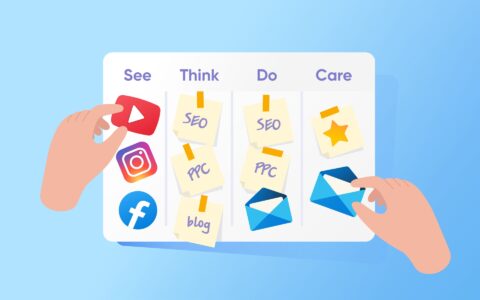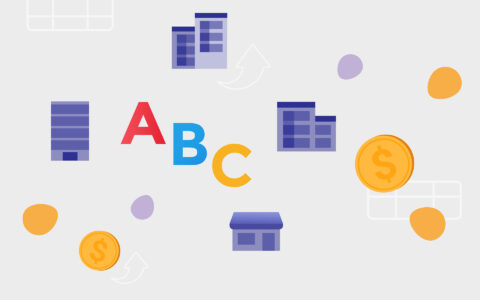PPC Advertising Is a Quick and Efficient Tool but You Have to Be Able to Control It

PPC advertising is one of the fastest ways to achieve the desired results in online marketing. However, learning to use PPC advertising in the right way can cost you a lot of time and money. So what strategy to choose when creating PPC campaigns? And what to be careful about in the beginning?
Do you have a small business and need to become visible online, but you don't want to pay marketing agencies for promotion? Online marketing works with a variety of tools that let you make your brand visible and turn potential customers into buyers. It's just about finding out which tool is close to your target audience and learning how to use it. You can start writing a corporate blog, record podcasts, collaborate with an influencer, create content on social networks, prepare bulk emails, or start just with PPC advertising.
What is PPC advertising?
They're not as widely known as TV ad slots or outdoor billboards, but it's still possible that you've heard of PPC ads in the past. PPC advertising is most common in browsers – Google, Bing, etc. Most of the time, it appears directly in search results, and we often don't even notice that it's an ad. Although ad tags are required.
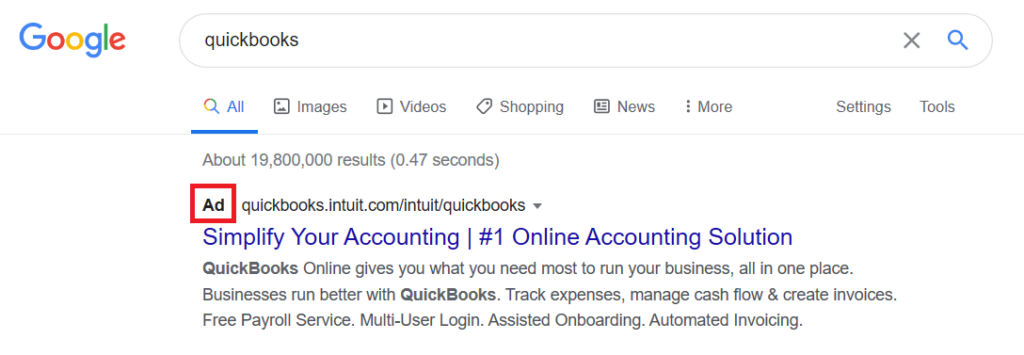
Nowadays, however, advertising through PPC campaigns is actually offered by every great Internet player. You'll come across it on all social networks – Facebook, YouTube, LinkedIn, Instagram, etc. Therefore, PPC advertising may not be just a result of searching. It can also be banners on websites, videos, and other formats. It is often very ingeniously camouflaged under the heading "Recommended" or "Featured". However, a company that wants to have its app in this section has to pay for it. And this is, as the name suggests, most often in the form of a cost-per-click payment, i.e. pay-per-click, where the PPC ad designation comes from. In PPC systems such as Google Ads and others, however, there are also alternative ways to pay for such advertising. In addition to paying per click, you may see, for example, a payment for ad impressions (mostly for a thousand impressions) or an action (commissions from the order made, registration, etc.).
When choosing a payment model method, it is proven to focus on the target of your ad. Not in vain, carmakers use visually appealing banners and videos and prefer to pay for their display. Clicking on their tempting advertising does not, in the vast majority of cases, lead to the immediate purchase of a new car. Their goal is to make a brand visible, and without having a chance to look into their statistics, it can be assumed that they would pay more when paying for clicks on their ad. However, if you need to earn orders or anything that helps you earn a profit, pay per click should be the best option.
PPC platforms
You can place PPC ads on different platforms and use different tools. They all have their merits, but not all fit every situation. It is important to bear in mind that you reach potential customers at different stages of the purchasing process, and you should also choose individual tools accordingly. The basic ones are as follows:
- Search networks (browsers such as Google or Bing)
- Display networks (banners, videos, and other formats)
- Remarketing (shown on both the content network and social networks)
- Shopping campaigns (Google Merchant Center, Facebook Merchant and more)
This division is based on working with Google Ads – the most widely used PPC system in which you manage all platforms belonging to Google (including YouTube). The inclusion of other PPC systems and social networks is individual. For example, Facebook has its own shopping campaigns Facebook Merchant (which most social networks do not), uses the same formats as content networks, and allows for remarketing. So how can be different platforms used?
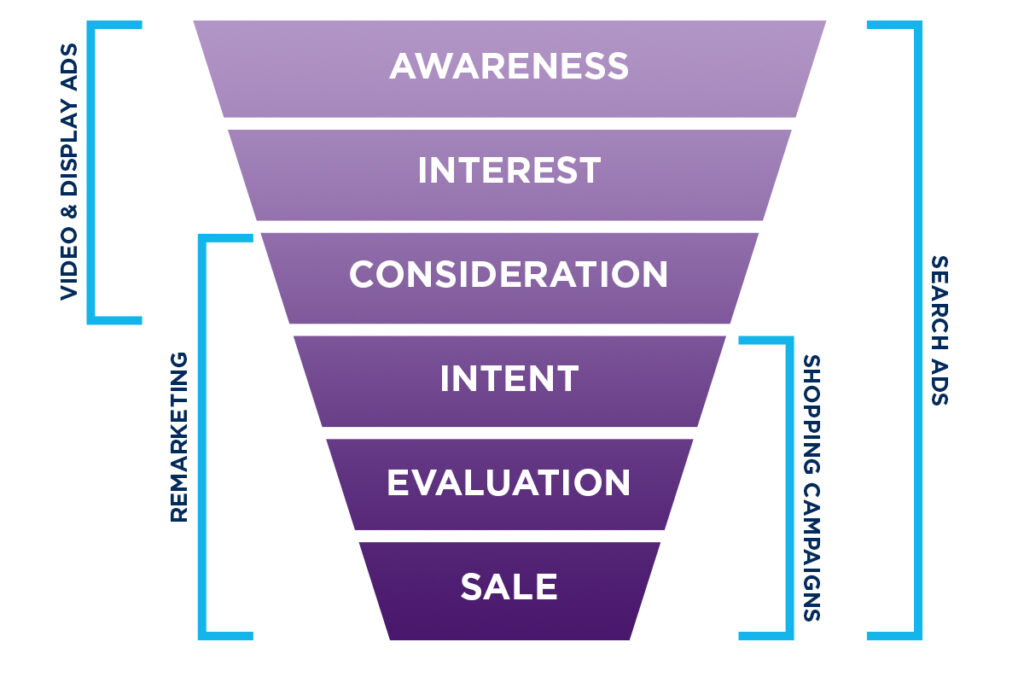
Source: https://www.bluecorona.com/blog/pay-per-click-statistics/
Search networks
Let's say you do financial consulting and you still want to have enough customers. Printed Yellow Pages were buried by the internet. Other offline advertising formats, if they have not already had the same fate, are the next to follow. There's no choice but to adapt and become visible online. In this case, you will definitely start by signing in the catalogs of companies, the online equivalent of Yellow Pages. But you don't use nearly as many people as Google or Bing. When you need service, such as financial advice, you're probably searching Google.
If you want to get to the top of the browser search, your journey will lead either through SEO optimization, allowing you to slowly work your way to the top just behind those labeled "Advertising" or PPC campaigns. Compared to SEO optimization, the downside of PPC advertising is that you immediately disappear from search results as soon as you stop paying for ads. On the other hand, SEO optimization is really a long run, and if you want to secure enough demand, you can use PPC at least until your site becomes a permanent first page of Google search. You can decide later on whether you continue with PPC or not. But believe that you won't get enough demand if you're not at least on the first page of the search.

Offer what customers look for
At the beginning of the preparation of a new campaign, you need to consider whether the target website actually finds an answer to your question. This applies to both SEO optimization and PPC campaigns, which are linked in many ways. For example, if a customer enters the query "financial advice Boston" into the browser, it is worth creating a separate page on your website related to this topic (ideally using these keywords) with your address in Boston and other information. What questions, or keywords, customers are looking for, can be told by the hints appearing in the Google search bar. Once you write "financial advice", it will tell you other options. However, you'll find keyword planner in Google Ads much more useful to continue working on PPC campaigns.
There you will find not only what customers are looking for, but also the average number of users who search for a given keyword per month, how competitive the word is, which is also the third figure, the cost-per-click estimate that you pay when viewed at the top of the search engine.
You may find that the cost-per-click keyword of the very competitive keyword "financial advice" is too high compared to "financial advice Boston". The more specific keywords you manage to find, the more likely the price will be lower and the customer will find directly what they are looking for. Such keywords are referred to as so-called long-tails. Expect to see fewer visitors, but there will be more relevant leads that are more likely to be purchased. Ultimately, you can save a lot.
Eliminate unwanted clicks
In search networks, you pay for clicks, which are sometimes very expensive. And so it pays to use Keyword Planner to eliminate undesired clicks. The way to avoid undesired clicks is the use of the so-called eliminating negative keywords. These are words that can't appear with your keywords during a search. If you want your CRM software ad to appear when you enter the keyword "CRM", make sure that the word "Honda" appears among the negative words. Your ad will not appear to a motorcycle fan looking for "Honda CRM" (note, this is a type of motorcycle). You can find such words before you start your first campaign in Keyword Planner.
Making a campaign
Once you are sure that you want to attract customers for financial advice in Boston, you can start creating the first campaign. At first, it's easy to make a lot of mistakes that can cost you money. Therefore, set a daily limit on how much you're willing to pay for your campaign ad.
Each campaign consists of so-called ad groups, in which you create the advertisements. You can name and organize your campaigns and reports as you need. You can, therefore, divide the ad groups in the campaign promoting financial advice in Boston by the keywords you found a while ago. Not everyone is thinking the same way and looking for "financial advice in Boston". Users who are looking for "financial advisor Boston" or "financial consultant Boston" can be your customers just as well.
Then it's the creation of the ad itself. This should be attractive and it should show the keyword that a potential customer is looking for. The keyword should appear in the title, label, and address of your website. Of course, your URL won't always match the keyword as ideally as in the case of the financial advisor, but in Google Ads, you have the option to include the keyword for the domain ".com". In this case, therefore, the word "Boston".

If you're one of those who first order a cupboard, put it together (sometimes well, sometimes wrong), and look at the instructions only after that, then you can start creating the first campaign. But we recommend starting with the lowest budget possible. PPC campaigns are quite complicated and it pays to take a PPC ad course or at least study the guide to Google Ads.
Measuring and evaluation
If you manage Your PPC campaigns on your own, you'll appreciate it if you have a positive relationship to numbers and statistics. Ultimately, ROI will be the most important when evaluating campaigns and deciding whether PPC advertising is the right strategy for you. In addition to the cost-per-click, you should include, for example, the cost of managing campaigns when you outsource.
However, you'll find other statistics in your campaigns that tell you what you can improve. For example, a CTR (or click-through rate) might indicate that your ad doesn't answer user questions or isn't appealing enough for them. The conversion rate may then indicate that you don't have enough demand despite enough clicks. Maybe the prices for your financial advice are too high. Maybe your site isn’t clear. There may be more reasons, but unfortunately, you won't find a solution in Google Ads.
Display networks
Let's say your target is to raise awareness of your brand. Do you still remember the carmakers at the beginning of the article? Display networks are ideal in this case. What does a display network mean?
The display network includes more than 2 million websites that work with Google Ads (or another similar service), and social networks are very similar. So whenever you see a video on YouTube or social networks or banners on those sites, it's usually an ad on the display network.
On the display network, your ads are not targeted based on keywords, but based on different targeting methods. From demographic and geographic to user interests. The fundamental difference is that, unlike the display network, the customer is not actively looking for anything. On the other hand, you can reach a wide range of users to create "fertile ground". The next time a customer comes into contact with your brand, they'll at least know they've heard of you before. And that's good, whether you're a carmaker or a financial advisor.
Remarketing
Remarketing is a specific form of advertising that allows you to reach customers who have already visited your website but have not placed an order or demand. Remarketing usually occurs in the same places on display networks or on social networks. Therefore, the customer is probably already considering buying your product or service. Why not remind him?
In real life, this works when your webmaster uses the so-called Google Ads remarketing code (it's called a pixel on Facebook) on your webpages. It makes visitors to your site enter the so-called remarketing list.
If a visitor to your website has already been on the request form page and did not submit it, you can remind it to them and offer the first hour of consultation for free if you did not offer it in the search ad. Maybe you can convince the customer this time. Or maybe they just needed time to think.
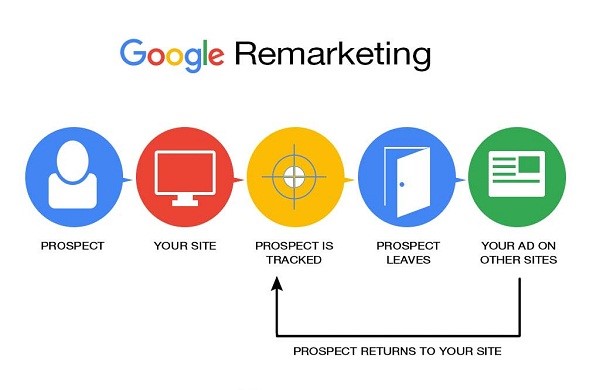
Source: https://www.nelsononeill.com.au/insights/what-is-remarketing-and-why-is-it-important/
Shopping campaigns
A comprehensive theme like other PPC advertising formats are shopping campaigns. Carmakers and financial advisers won't find much benefit here. However, these platforms are an excellent tool for e-shops, as users often visit them with interest or unequivocal intention to buy. And precisely because the potential customer already chooses between you and the competition, the visible parameters of the price and credibility of the brand are very important here at first glance. However, you will also apply some knowledge from search networks.
Is it worth investing in PPC campaign management?
If you choose to use PPC campaigns, the big question is whether, in addition to spending per clicks, to invest your own time in managing them or entrust their management to a PPC specialist or agency. Outsourcing can cost you more than you would rate your own time managing them. On the other hand, if you feel that you don't understand PPC campaigns very well, a truly capable specialist can produce such results that the profits will outweigh all the costs associated with running campaigns in the long run. You may find that it pays to use completely different online marketing tools to promote your product or service.






